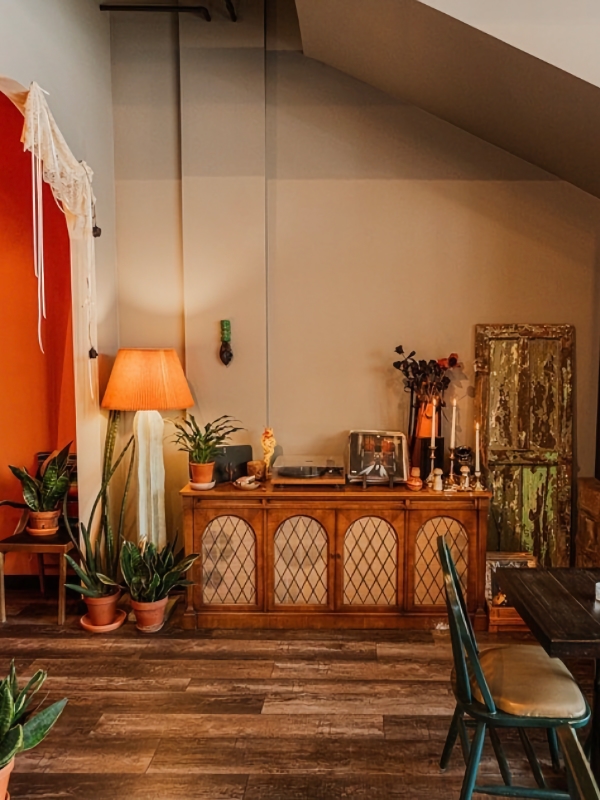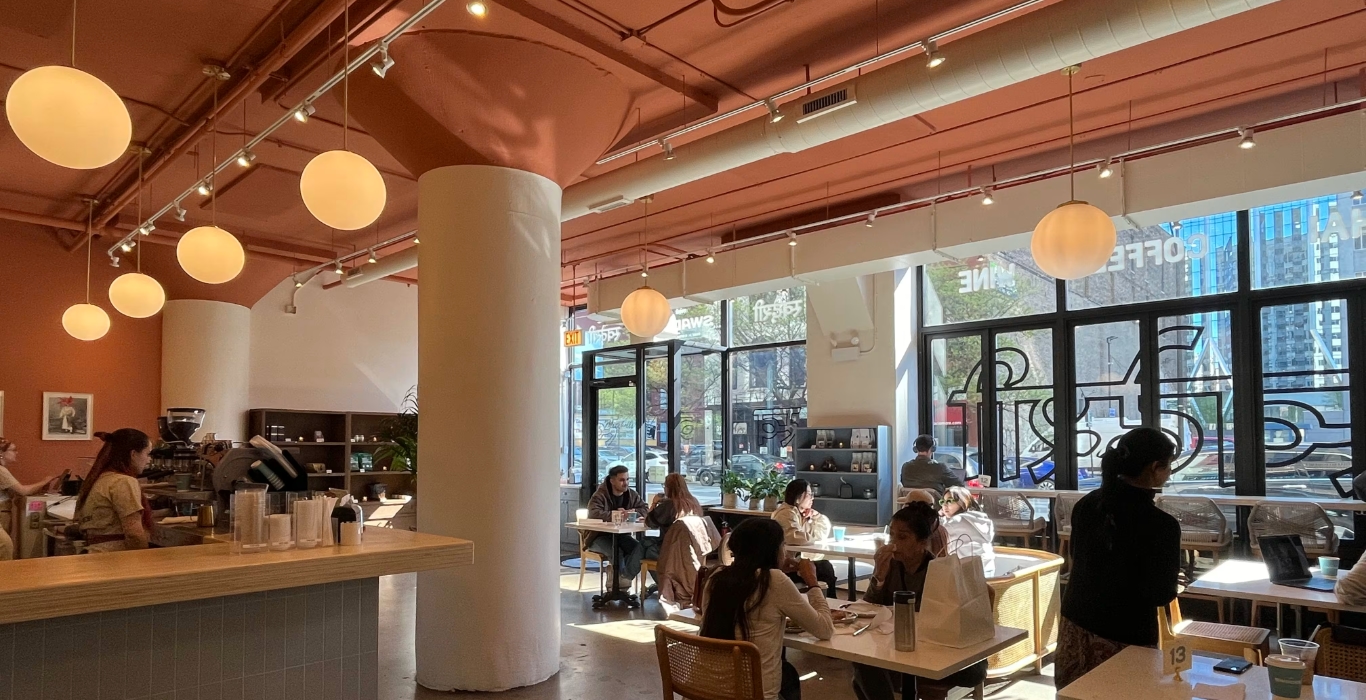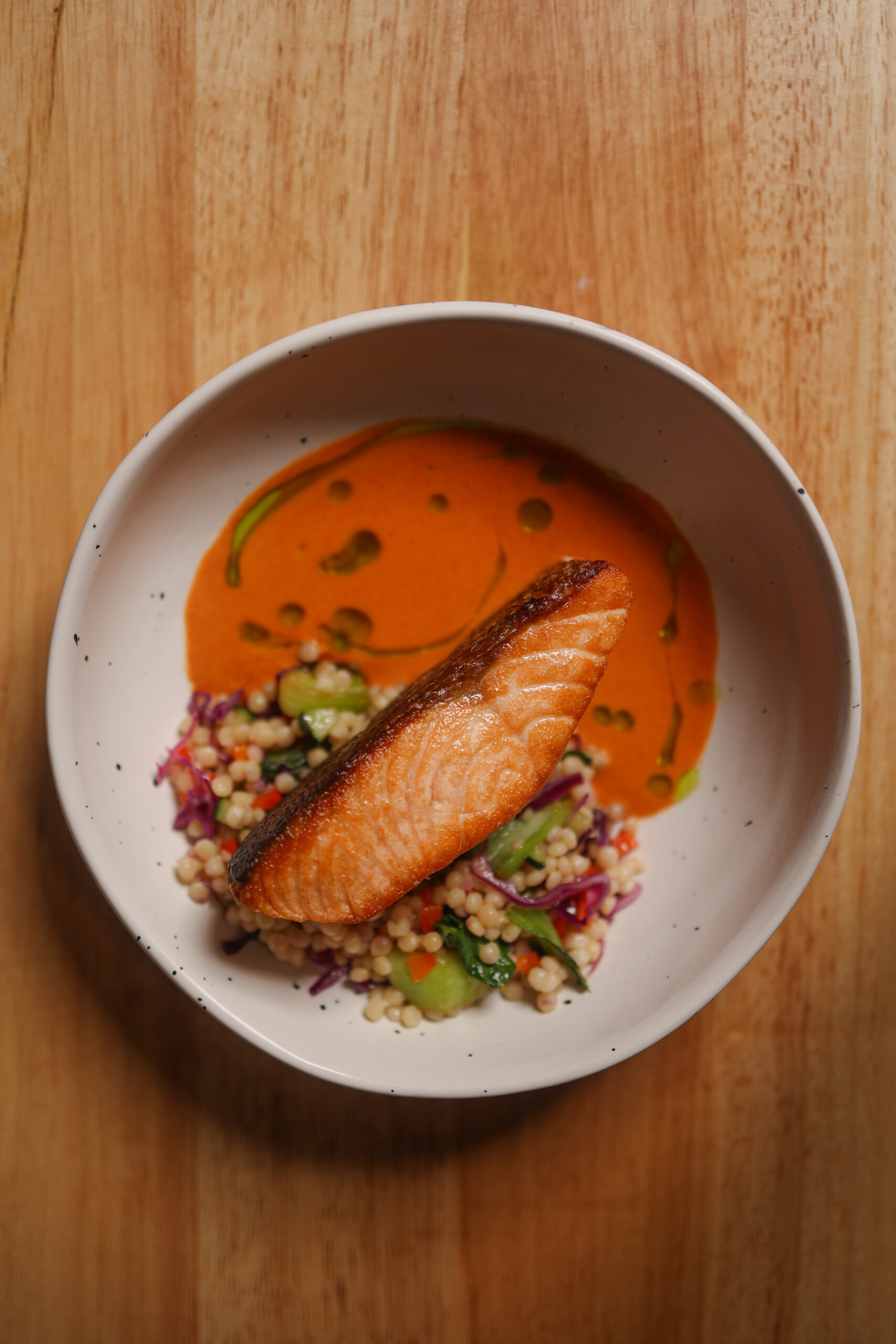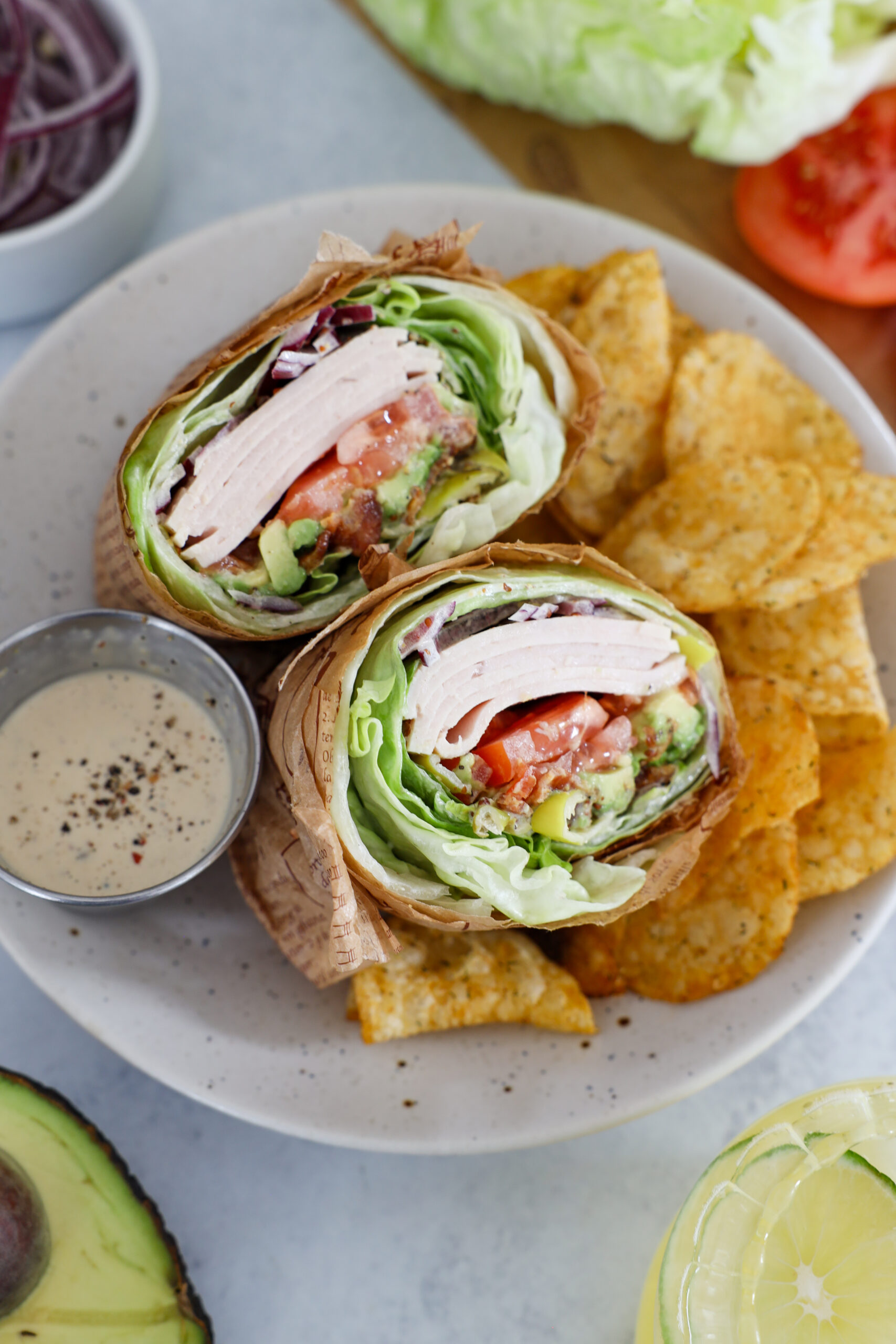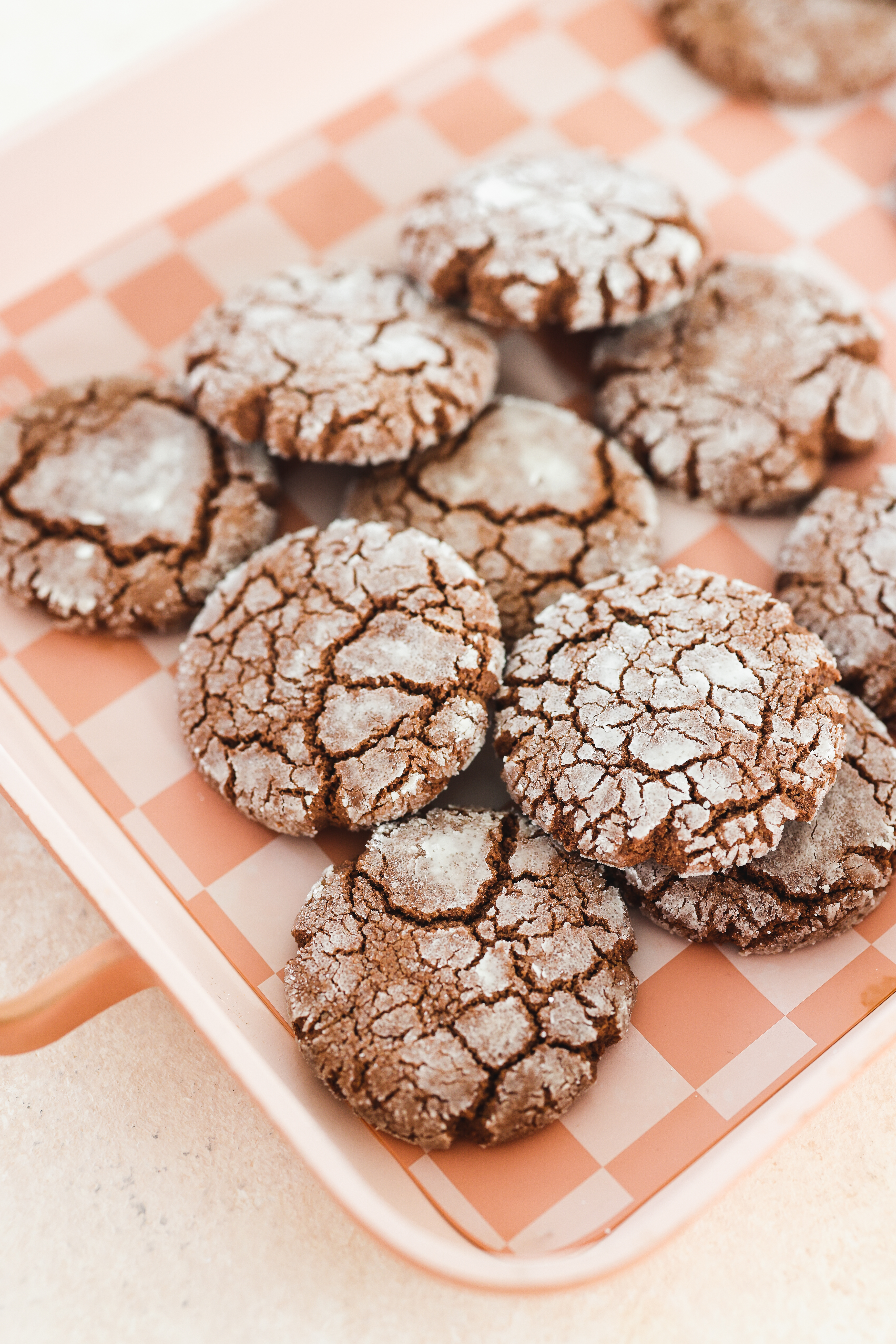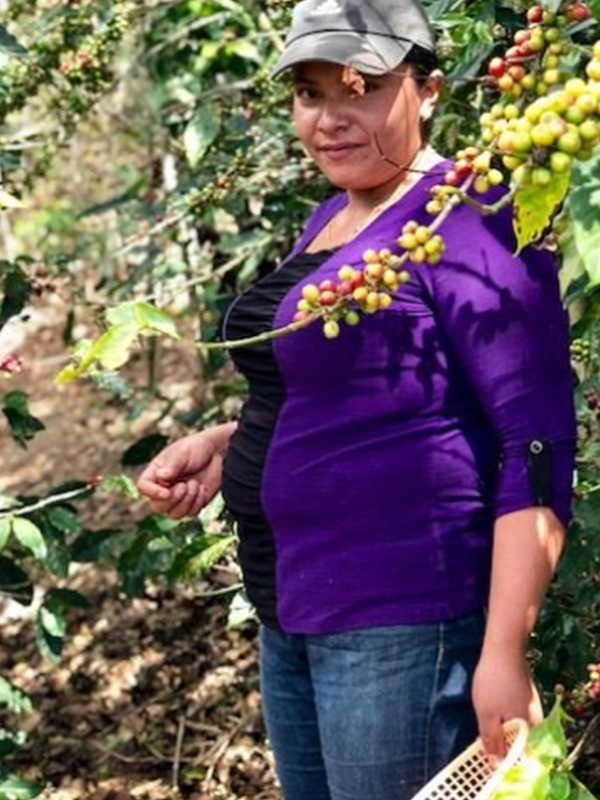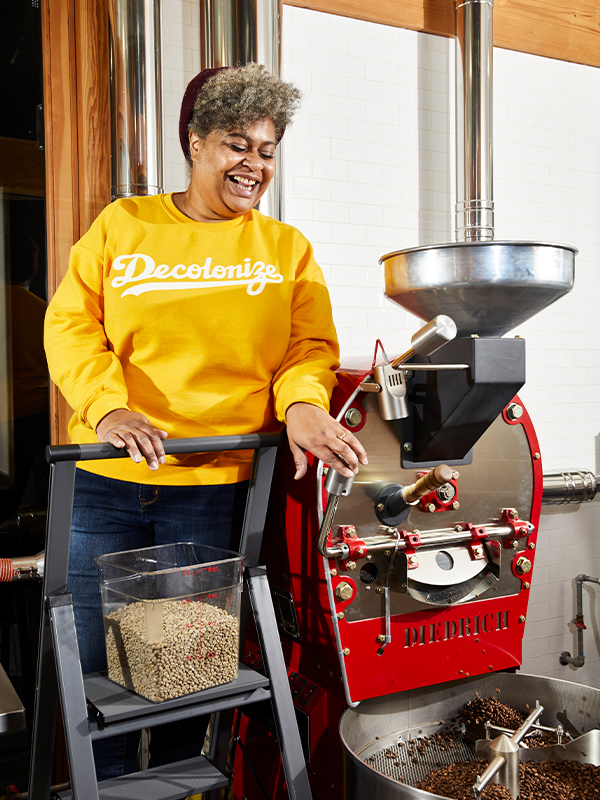Coffee shops are the rhythm of our communities. In any neighborhood, people have a favorite coffee shop. They know the best seat, have a go-to order, memorized where all the outlets are, and struck up a friendship with the barista. Coffee shops are our third spaces, sites of intergenerational communication, creativity, and social justice.
And for people of color, infusing coffee shops with their cultures, causes they care about, or creative endeavors, makes these spaces all the more special. Below Sweet July has selected ten coffee shops around the country — including our very own — where you can go to be immersed in culture and community.
Chinese-American Brandon and Faith Lee are co-owners of Bird & Branch, a coffee shop in Hell’s Kitchen. The shop has a big mission — to restore the community with their job training program that helps people who have been victims of human trafficking or have been in the shelter system. Come check out their ethical coffee sourced from Saint Frank Coffee roasters. They also incorporate their culture into the menu, most deliciously with a sandwich made with rousong (pork floss) and ginger scallion.
Right across the street from the legendary historically Black university, Howard University, Sankofa Cafe has been a hub for both the academic and local DC community for decades, since they opened in 1997. Owned by Ethiopian film director Haile Gerima, the coffee shop also stocks independent African film, books about Afro-futurism, civil rights movement, and African histories, as well as serving up delicious Ethiopian coffee, healthy smoothies, and a classic Ethiopian stew ful, made with fava beans and topped with fresh tomatoes, onions, serrano pepper, and hummus or feta cheese.
Chef Sujan Sarkar, co-founder of Indienne and Sifr in Chicago, recently launched his new endeavor Swadesi, an Indian-inspired coffee shop. Head to this cafe to get masala chai, butter chicken croissants, jaggery chocolate cookies, and a samosa croissant made with tamarind and mint chutney. For those that work from home, there’s wifi and printing, along with a retail shop where you can grab authentic Indian snacks and cooking ingredients. Pronounced “swuh-deh-shee”, Swadesi means “from one’s country” and that’s the spirit this unique coffee shop embodies — an experience directly from Chef Sarkar’s own beautiful, dynamic home country.
Casa Cactus is Belizean and Mexican-owned, and the space has cacti everywhere. The prickly plants envelop you as soon as you walk in, creating a vibrant and homey space. Often, local activist groups are able to use the space for events as well. The co-owners wanted to create a space that
These desert plants had to adapt to survive in desert climates, in harsh conditions, which is what the co-owners’ mothers also had to do when coming to this country. So the space is not just full of cacti, but all the comforts of home, including cozy textiles and comfy chairs. They also represent their cultures with horchata lattes and Belizean meat pies.
This Indigenous-owned coffee shop says they are continuing the work of their ancestors by making coffee, a survival food of their people. In addition to coffee, they use heritage ingredients native to the Great Basin, like chokecherries, sage, and pine nuts. Their ethos is about expanding economic opportunities for Indigenous communities that have been subjected to chronic poverty and underinvestment, by reinvesting in tribal-owned businesses.
In Denver, Whittier Cafe is known as the spot for activists. Named after the Whittier neighborhood, a historically Black neighborhood battling gentrification, Whittier Cafe shows immense love to both the neighborhood and the wider community. Owned by Ethiopian Millete Birhanemaskel, the shop is decorated in African Diasporic and protest art. This cozy community spot hosts open mics, politicians’ talks, book fairs with local authors, movie screenings, and community discussions about how to build a better world. And, as if that weren’t enough reasons to visit, Whittier Cafe does a traditional Ethiopian coffee ceremony on Sunday afternoons.
In Denver, Whittier Cafe is known as the spot for activists. Named after the Whittier neighborhood, a historically Black neighborhood battling gentrification, Whittier Cafe shows immense love to both the neighborhood and the wider community. Owned by Ethiopian Millete Birhanemaskel, the shop is decorated in African Diasporic and protest art. This cozy community spot hosts open mics, politicians’ talks, book fairs with local authors, movie screenings, and community discussions about how to build a better world. And, as if that weren’t enough reasons to visit, Whittier Cafe does a traditional Ethiopian coffee ceremony on Sunday afternoons.
Bison Coffeehouse is owned by Loretta Guzman, a citizen of the Shoshone-Bannock Tribes. Bison Coffeehouse sources from Indigenous owned roasters, many of whom are on reservations throughout the country. She got the inspiration for the name when she was sick from cancer and dreamed of a bison roaming the streets of Portland, land where bison haven’t been for generations, land that belongs to the Cowlitz, Confederated Tribes of Grand Ronde, and Clackamas people. But the coffeehouse is a reminder of the importance of restoration and of centering Indigenous people. There aren’t many Indigenous owned coffee shops on Indigenous land, but places like Bison Coffeehouse are changing that.
Nossa Familia means ‘our family,’ in Portuguese, and this coffee roaster with multiple cafe locations delivers on the name, sourcing the majority of their coffee beans from founder Augusto Carneiro’s family farms in the Brazilian highlands. One of their specialties is Brazilian cafézinho, what they describe as “an invitation to pause,” a strong espresso with hot water and raw sugar. Their chocolate-espresso whipped cream is an incredible cloud of happiness to add to any drink you choose.
Located in downtown Los Angeles, Homegirl Café & Catering provides an opportunity for guests to not only enjoy delicious food, but make an impact in the community. The goal of Homegirl Café is to provide a safe space for its employees, many of whom are females, that have experienced domestic violence and single parenthood, in addition to challenges resulting from gang involvement and incarceration. Open Monday through Friday, guests can order from a Latin-inspired menu which includes the café’s famous Chilaquiles, breakfast tacos and burritos, and an assortment of pastries and coffees.
The café is one of the many programs offered through Homeboy Industries, which began in 1988 by Father Gregory Boyle, a 2024 recipient of the Presidential Medal of Freedom. Homeboy Industries has evolved into the largest gang intervention, rehab and reentry program in the world. Each year, 10,000 people, including those at Homegirl Café, benefit from the program’s “wraparound services” which includes everything from educational help and housing support, to legal services and life skills classes.
Located inside the Regent Hotel Santa Monica Beach, this new location of the Sweet July cafe continues the mission of founder Ayesha Curry. The new café will serve their signature House Blend Coffee, a blend of coffee sourced from women-owned cooperatives in Central and South America, amongst other seasonal roasts. It will also feature a never-before-seen menu inspired by Curry’s love for California farmers markets, alongside a nod to her Jamaican heritage. The Grilled Jerk Chicken sandwich with slow roasted tomatoes and mango-cabbage slaw is a must try, as well as a slice of Sweet July’s signature bread pudding featuring seasonal produce.
Palestinian-owned Jerusalem Coffee House embodies the revolutionary spirit of Yemeni coffee houses, where politics and social issues were discussed, creating such a threat to local leaders that they were banned, with people turning their homes into coffee houses instead.
This legacy of revolution and defiance lives on in Jerusalem Coffee House, which not only honors the Palestinian struggle for freedom, but the struggle of the Black Panthers and the Ohlone people — who are Indigenous to the Bay Area. Come here not just for coffee, but for Palestinian classics like tea with sage, or a new creation called “Bepsi” a fun play on the Palestinian pronunciation of the drink, made with cardamom, soda water, and espresso.
April Deocariza contributed to this story.
